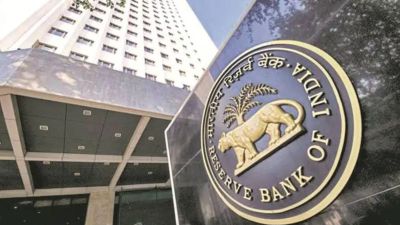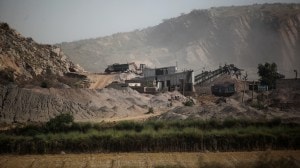To be a hard state
On terrorism, it8217;s time India accepted the trade-offs and made the choice for policies of long-term deterrence

Mumbai 1993, Coimbatore 1998, Jammu 038; Kashmir Assembly complex 2001, Parliament 2001, Akshardham 2002, Jammu army camp 2003, Mumbai car bombs 2003, Assam bomb 2004, Ram Janmabhoomi 2005, Delhi blasts 2005, Varanasi 2006, Mumbai train bombs 2006, Malegaon 2006, Hyderabad Masjid 2007 and now Hyderabad again on August 25. This is a list of major terrorist incidents Indian citizens have been subjected to in the last 14 years. To say India is second only to Iraq in terms of civilian lives lost is to state the obvious.
There is some cross-country literature on the link between political freedom and terrorism. In autocratic and dictatorial countries, political freedoms are low, but terrorist acts are also difficult. And in advanced democracies where political freedoms are high, terrorist acts are rare as the political process provides a vent. Terrorist incidents are highest in intermediate democracies. India ought to be in the advanced zone, but seems to be in the intermediate category.
We can go around in circles trying to define terrorism. There are clicheacute;d expressions like one person8217;s terrorist is another8217;s freedom-fighter. But there is clearly a difference between a cause perceived as legitimate and the terrorist act that is not only violent, but also targets non-combatants or civilians. There is also a difference between terrorism that has collective support, implicit or explicit, and that which is purely individual.
The former is easier to understand, because both supply of and demand for terrorists is driven by a sense of economic, political, ethnic or religious deprivation, real or imagined. Assam, J038;K, Manipur, Mizoram, Punjab, Nagaland, Tripura and the Naxalite belt across central and eastern India belong to this category. While easier to understand, the policy response is more difficult. But what is happening in Mumbai, Hyderabad or Bangalore is different. Not only is it individual, there is no clear link to deprivation. This is more difficult to understand, but policy response ought to be simpler.
In Madan Singh versus State of Bihar 2003/04, the Supreme Court was justifiably harsh on terrorism, describing 8220;acts of terrorism veritably as 8216;peacetime equivalents of war crimes8217;8221;. But once the headlines fade, do we take terrorism that seriously? India is variously described as a soft state, unlike hard states like US or Israel. The only way to make these terms tangible is by bringing in costs, especially of anti-terrorism measures.
The short-term cost of a terrorist incident of the individual variety isn8217;t much, not unless weapons of mass destruction are used. Yes, there is a loss in human lives, perhaps even physical capital stock buildings and the like. There are other direct short-term costs that are often sector specific tourism, insurance, stock market. For Bali 2003 and US 9/11 there are estimates ranging between 0.5 and 0.75 per cent of GDP for one-shot terrorist incidents. These are probably over-estimates, because money not spent on visiting Hyderabad will be spent elsewhere.There is a difference between a macro cost and expenditure switching.
These one-shot cost estimates are also distinct from larger costs involving more permanent and continued terrorist violence, usually of the collective variety. That is what is meant when the Strategic Foresight Group tells us conflict within South Asia leads to annual GDP losses of between one and two per cent. Without downgrading the importance of human lives, the point is that economies, especially those that are diversified the way India is, can handle these one-shot costs and move on. Of greater importance is the longer-term cost of deterrence. More needs to be spent on law enforcement, intelligence gathering and security and some expenditure on security can also be private. Human rights and judicial independence are curtailed. There is a trade-off and one can8217;t wish it away. Transaction costs are imposed on travelers, visitors, external trade, capital and foreign exchange markets and even business. Resources that could have been used more productively are diverted to less productive uses. We spend more on protecting existing human and physical capital stock and less on enhancing growth potential. We pay more attention to security rights of citizens, less to human rights of suspected terrorists.
The argument that there is plenty of slack in the present public expenditure system and efficiency can be improved without diverting resources away from, say, social infrastructure, doesn8217;t get us very far. Cross-country estimates suggest anti-terrorist deterrence requires expenditure of 2 per cent of GDP. Such calculations require valiant assumptions and simplifications. If this expenditure switching is half as efficient as present expenditure, with a capital/output ratio of 3.5, diversion to deterrence leads to annual GDP loss of around 0.3 per cent. Sticking to the domain of individual terrorist acts, do we want such losses or do we live with one-shot reductions of 0.5 per cent every once in a while? Even if 0.5 per cent is an over-estimate and even if everything cannot be reduced to money values, the choice should be obvious. This brings one back to the hard state/soft state dichotomy. Hard states are those where the trade-off is recognised and the choice is made. In the political freedom spectrum, advanced democracies absorb some characteristics of primitive democracies dictatorial states, but preserve their democratic character by building in legal safeguards. Soft states like India don8217;t accept the trade-off and don8217;t make the choice.
Take the Hyderabad instance. The All India Majlis-e-Ittehadul Muslimeen AIMIM has 1 Lok Sabha seat and 4 assembly seats. It supports the UPA at the Centre and the Congress government in Andhra and has distinguished itself by opposing a motion in the Andhra assembly condemning 9/11 and attacking Taslima Nasreen in August 2007. A few days before the Hyderabad blasts, AIMIM criticised Hyderabad8217;s anti-terrorist squad for adopting a hard-line approach to terror and this is reportedly the reason why investigations have been handed over to CBI. Has anyone from the central or state government uttered a word against AIMIM? Not that I know of.
The writer is a noted economist
- 01
- 02
- 03
- 04
- 05































